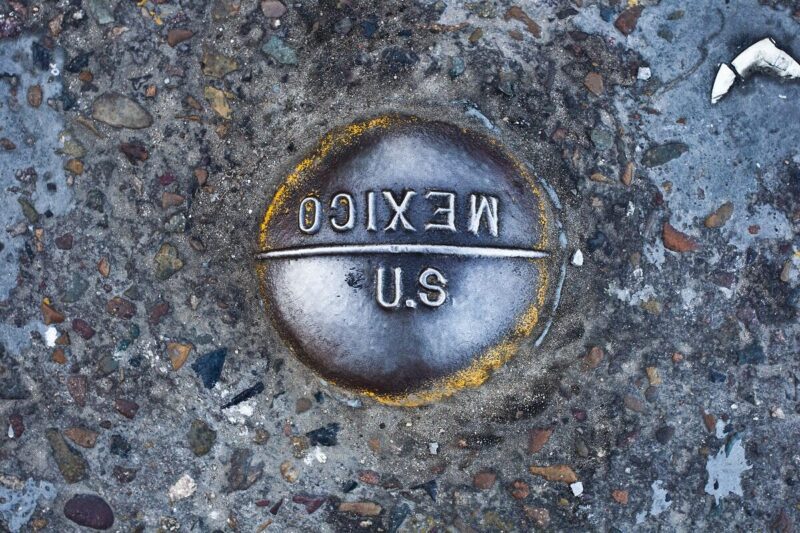NOGALES, ARIZONA – On April 16, U.S. Customs and Border Protection Officers Task Force Officers (TFO) and special agents with Homeland Security Investigations (HSI) under the Nogales Trade Enforcement Coordination Center (TECC), at the Mariposa Port of Entry in Nogales, Arizona examined a Mexico-bound tractor-trailer. TECC TFOs discovered three undeclared pallets of Chinese manufactured “Virus Shut Out” necklaces. These necklaces resemble a lanyard with name tag, only in place of a nametag is a blue packet filled with chlorine dioxide to allegedly create an anti-bacterial cloud around the wearer, protecting them from COVID-19.
The shipment contained 30,000 devices, commingled within the merchandise which included clothing bearing counterfeit trademarks. Contents of the shipment were detained by CBP and HSI pending further research and investigation. The findings resulted in the seizure of the necklaces due to their infringement of federal pesticide laws, while the t-shirts were seized for trademark violations.
According to the Centers for Disease Control and Preventions, prolonged chlorine dioxide exposure may result in conditions varying from respiratory irritations, to severe breathing difficulty and chronic bronchitis.
CBP’s Pharmaceuticals Centers for Excellence and Expertise (CEE) appraised the domestic value of the Virus Shut Out necklaces at $479,700. The apparel, footwear & textile CEE appraised t-shirts domestic value at $24,200.
CBP personnel intercept counterfeit goods bound for consumers and marketplaces throughout the United States every day.
In addition to posing potential health and safety hazards, counterfeit goods are often of inferior quality. Peeling labels, low-quality ink or printing errors on the packaging, and loosely packed items in the box can be signs that the product you purchased may not be legitimate. Counterfeit apparel and handbags may feature poor or uneven stitching and improperly sized or designed logos. The performance of counterfeit electronics is often marked by short battery life and regular overheating.
Consumers can take simple steps to protect themselves and their families from counterfeit goods:
- Purchase goods directly from the trademark holder or from authorized retailers.
- When shopping online, read seller reviews and check for a working U.S. phone number and an address that can be used to contact the seller.
- Review CBP’s E-Commerce Counterfeit Awareness Guide for Consumers.
- Remember that if the price of a product seems too good to be true, it probably is.
To report suspected counterfeits, visit CBP’s online e-Allegations portal or call 1-800-BE-ALERT. More information about counterfeit goods is available on CBP’s Fake Goods, Real Dangers website and StopFakes.gov.
